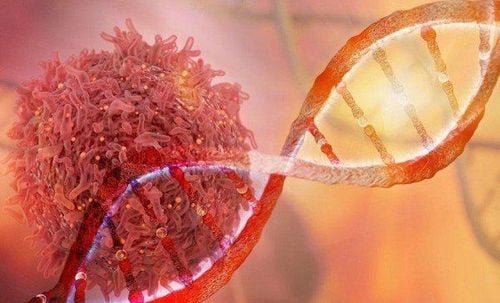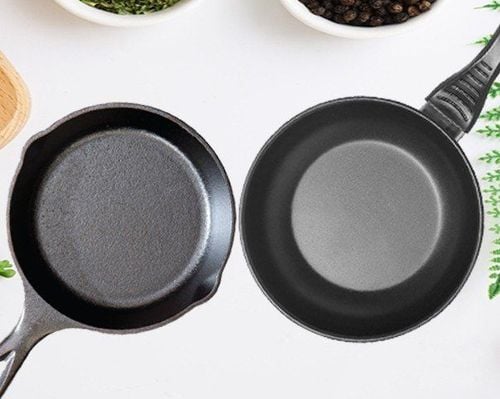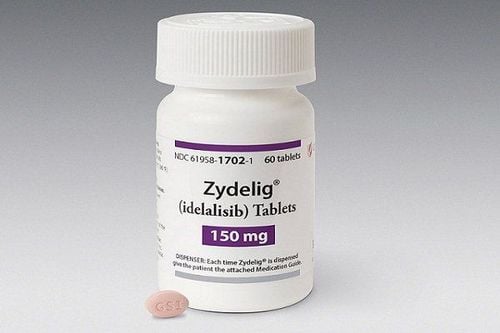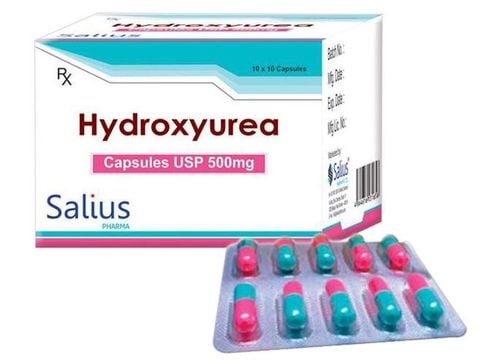This is an automatically translated article.
Teflon recipe is so famous that many people have called non-stick pans and pots Teflon. In fact, not all non-stick ingredients in cookware are Teflon. Despite being around for a long time, Teflon still poses potential health concerns. A constant question is whether nonstick cookware increases the risk of cancer.
1. What is Teflon?
Teflon is the name of a synthetic chemical known as polytetrafluoroethylene (PTFE). Teflon is used as a non-stick coating on many types of products because it is impermeable to water and helps reduce friction.
Teflon has been used since the 1940s and appears in many items, from heat bulbs to fabric protectors. Besides, it is also used in industry, automobile and pharmaceutical. In fact, we are using a lot of Teflon coated products in our household. However, the most familiar use of Teflon is probably the non-stick coating on the surface of pots and pans, making cooking and cleaning utensils much easier.
2. Do nonstick ingredients in cookware increase cancer risk?
Concerns about cookware such as nonstick pots and cancer risk are completely unrelated to Teflon. This risk is related to perfluorooctanoic acid (PFOA), a chemical used in the production of Teflon.
Although PFOA was once used to make Teflon, from 2013 on all Teflon-branded products are PFOA-free. There are some studies that show a link between PFOA and cancer, but the link between Teflon and cancer is completely unfounded.
We need to understand why PFOA is of interest and why it is no longer used to make Teflon. During the production of Teflon non-stick coating, PFOA can contaminate soil, water, and air, and its existence in the environment and human body is very long.
Studies often involve high-risk groups exposed to PFOA and produce mixed results. In addition, exposure to polyfluoroalkyl-PFAS substances (a large group that includes PFOA) may lead to an increased risk of the following cancers:
Bladder cancer; Kidney cancer; Ovarian Cancer; Prostate cancer ; Testicular cancer.

Thành phần lớp chống dính có thể làm tăng nguy cơ ung thư cho con người
3. Do nonstick pans or pots cause other health problems?
Consumers with prolonged exposure to fumes produced by non-stick coated utensils may develop flu-like symptoms such as headache, chills, and fever. This often involves utensils such as non-stick pots being used at excessively high temperatures for many hours.
In fact, this condition is benign and symptoms tend to disappear within 12 to 48 hours of exposure to smoke. However, these symptoms can be severe for people with pre-existing cardiovascular or respiratory conditions.
Some other studies show that PFAS (not used to make Teflon since 2013) may be associated with:
Increased blood cholesterol levels; Reduced effectiveness of vaccines in children; Changes in liver enzymes; Increased risk of hypertension or preeclampsia in pregnant women; Low birth weight in babies; According to the American Cancer Society, there are no other proven health risks when using cookware coated with Teflon non-stick coating.
4. Teflon non-stick coating and risks to birds
Although Teflon cookware is safe for humans, the same cannot be said for birds. At around 280 degrees Celsius, Teflon-coated surfaces begin to release chemical products that can lead to PTFE toxicity in birds. Birds that breathe in the smoke can experience breathing problems, convulsions, and death.
Therefore, consumers tend to cook with Teflon nonstick pans or pots at high temperatures, keep pet birds away from the stove when cooking.
5. Do tools made of other materials cause cancer?
5.1. Aluminum utensils Food will come into direct contact with aluminum when cooking. Aluminum is a metal found in air, water, soil, and many other consumer products. When preparing food from aluminum utensils, some aluminum residue can stick to the food, but anodized aluminum helps to limit this.
However, aluminum cookware is considered safe and has not been linked to the development of cancer. Another impact is that aluminum's role in the development of Alzheimer's disease has yet to be determined.
5.2. Cast iron utensils When cooking with cast iron utensils, a small amount of iron will leach into the food. Of course, iron is still an essential element in the human diet. A 2014 study found that high serum iron could be a risk factor for all cancers, especially liver and breast cancer.
Additionally, a 2014 meta-analysis also found a link between high iron levels and cancer, although more research is needed to confirm this. Therefore, consumers may need to reconsider cooking with cast iron utensils, especially those with excessive iron levels in the body.
In contrast, the results of a 2003 systematic review indicate that cast iron tools may be a promising intervention for individuals with iron deficiency.

Nồi chống dính bằng gang thép có thể khiến thức ăn nhiễm một lượng sắt nhỏ
5.4. Stainless Steel Utensils There doesn't appear to be any health risks when cooking with stainless steel utensils. But an article published in 2013 noted that nickel and chromium can leach into ketchup. The amount of metal that gets into food will depend on the type of stainless steel, cooking time, usage and seasoning.
Some people who are sensitive to nickel or chromium need to consider choosing a cookware from another material instead of stainless steel.
6. Tips for using Teflon cookware safely
Here are some tips for using Teflon cookware safely:
Replace damaged or worn Teflon cookware; Preheat over low to medium heat; Do not leave a non-stick pan or pot without food on a hot stove; While the Teflon non-stick coating can be safe at temperatures up to 260°C, it's best to cook at low to medium heat; When using too high temperature, turn on the exhaust fan or open the window; Avoid hard metal utensils that can scratch the non-stick coating of Teflon pans; Do not use abrasive cleaning materials; Whether using a pan, non-stick pot or any other cookware, users should always follow the manufacturer's instructions for the safest use; If using Teflon cookware made before 2013 and are concerned about your health, try replacing them with newer Teflon cookware or pots and pans made of stainless steel or aluminum; In a nutshell, teflon is a synthetic chemical used to coat cookware. There are concerns that chemicals used in the production of Teflon may increase the risk of cancer. However, those chemicals have not been used in Teflon products since 2013. Teflon is now considered safe for cooking, with no evidence that Teflon increases the risk of developing cancer. letters.
Please dial HOTLINE for more information or register for an appointment HERE. Download MyVinmec app to make appointments faster and to manage your bookings easily.
Reference sources: healthline.com, webmd.com












